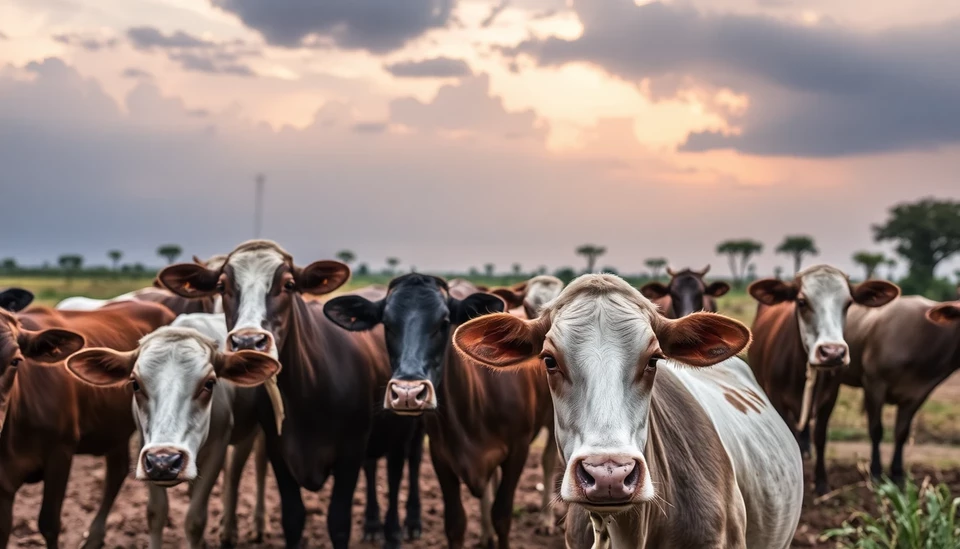
As climate change escalates in severity, the agricultural landscapes across Africa are undergoing profound transformations. With increased aridity, erratic rainfall patterns, and the looming threat of rising temperatures, the urgency for developing climate-proof livestock—particularly cows—has never been clearer. These adaptability strategies could prove crucial for maintaining food security and livelihoods for millions of people across the continent.
A recent report highlights that cattle play a pivotal role in the economies and cultures of numerous African nations. They are not only a source of meat and milk but also a significant form of wealth and cultural identity. However, the effects of climate change are compromising the health and productivity of cattle herds. Many farmers are grappling with shrinking pastures, droughts, and diseases exacerbated by climate stresses, calling for immediate action and innovative solutions.
In response, agricultural scientists and experts are pushing for the incorporation of more resilient breeds—those that can thrive under stress and adapt to changing environments. The focus is now on breeding practices that favor traits like drought resistance, heat tolerance, and disease immunity. Collaboration is essential, as stakeholders across the agricultural sector—from farmers to researchers—need to work together to develop a comprehensive breeding program that addresses these pressing challenges.
The implementation of climate-resilient cattle raising is anticipated to have far-reaching benefits beyond immediate productivity. By supporting the health of livestock, it strengthens the livelihoods of smallholder farmers who depend heavily on their animals. As these farmers become more resilient, they can contribute to the overall stability of food systems in Africa, which is imperative as the population continues to grow and demand for food rises.
Certain countries have already begun experimenting with climate-smart agricultural practices. For instance, some regions are exploring the integration of traditional knowledge with modern science to establish better grazing management systems that benefit both livestock and the environment. Such initiatives illustrate the potential of combining local wisdom with technological advancements to create a sustainable model for livestock farming in a changing climate.
However, challenges remain. Access to resources, education, and veterinary services is often limited in many parts of Africa, hindering the adoption of new practices. There is an urgent need for investment from governments, NGOs, and the private sector to help farmers transition to more sustainable, climate-resilient livestock management practices. Such investment could include training programs, financial support, and the establishment of better market access for those adopting these innovative techniques.
The road ahead is not easy, but the stakes are incredibly high. Ensuring the resilience of cattle and the farmers who raise them is pivotal for food security and economic stability in Africa. As the continent grapples with the impacts of climate change, it is clear that investing in climate-proof cows is not just a matter of livelihood—it's a pathway towards a sustainable future.
<#>ClimateChange #Livestock #SustainableAgriculture #FoodSecurity #Africa #ClimateResilience #AgriculturalInnovationClimateProofCows
Author: Sophie Bennett
